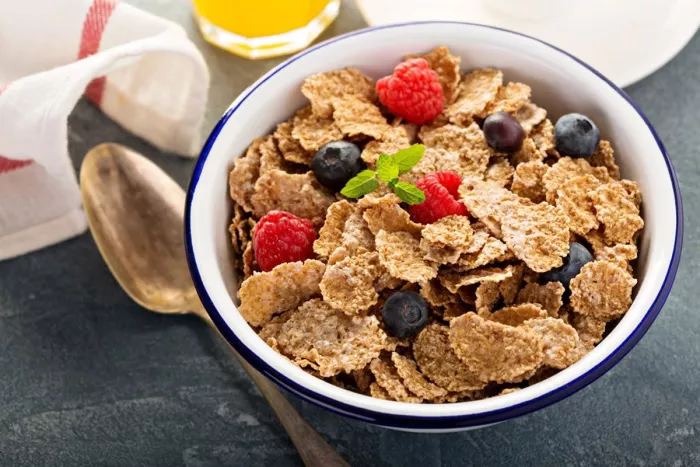In today’s world, the word “diet” often conjures images of deprivation, strict rules, and temporary solutions. However, the easiest diet to follow is one that defies these stereotypes, offering a sustainable approach to lasting health and well-being. This article will explore such a diet, designed to make positive dietary changes accessible and manageable for anyone seeking to improve their overall health. The term “diet” itself can be intimidating, but it doesn’t have to be. When approached with the right mindset and strategy, it can become a lifelong companion on your journey to a healthier, happier you.
Understanding the Notion of a Diet
Before delving into the specifics of the easiest diet to follow, it’s essential to clarify what we mean by “diet.” In its most general sense, a diet refers to the sum of food and drink consumed by an individual. It’s not confined to just weight loss, calorie counting, or restrictive eating patterns, as is often assumed. Rather, a diet encompasses every aspect of your nutritional intake. Therefore, when we discuss the easiest diet to follow, we are focusing on a balanced, sustainable, and healthful way of nourishing your body, without the need for constant self-deprivation.
The Key Elements of an Easy-to-Follow Diet
The easiest diet to follow should consist of key elements that make it manageable and sustainable for the long term. These elements include flexibility, simplicity, and a focus on wholesome, nourishing foods.
Flexibility in Food Choices
The first hallmark of an easy-to-follow diet is flexibility in food choices. It’s unrealistic to expect that people will adhere to a strict, monotonous regimen of foods. Instead, the easiest diet to follow allows room for personal preferences, cultural differences, and individual needs. This flexibility ensures that the diet can be adapted to various lifestyles and that it remains enjoyable and practical.
Simplicity in Meal Planning
Complexity can be a significant barrier to diet adherence. The easiest diet to follow should emphasize simplicity in meal planning. It doesn’t require intricate recipes or hours spent in the kitchen. Simplicity allows individuals to maintain a healthy diet without feeling overwhelmed or constrained by their culinary skills and time limitations.
Focus on Wholesome Foods
An easy-to-follow diet should prioritize whole, unprocessed foods. These foods are not only more nutrient-dense but also easier to incorporate into daily meals. Whole foods, such as fruits, vegetables, lean proteins, and whole grains, offer a wide range of health benefits and make it easier to sustain a balanced diet.
The Easiest Diet to Follow: The Mediterranean Diet
Among the various dietary patterns, the Mediterranean diet stands out as one of the easiest to follow and maintain. This diet is well-regarded for its flexibility, simplicity, and focus on wholesome foods. Let’s explore the Mediterranean diet in more detail to understand why it’s an excellent choice for anyone looking for an easy-to-follow diet.
What Is the Mediterranean Diet?
The Mediterranean diet is a dietary pattern inspired by the traditional eating habits of countries bordering the Mediterranean Sea, including Greece, Italy, and southern Spain. It is renowned for its health benefits and is consistently ranked as one of the world’s healthiest diets.
Key Features of the Mediterranean Diet
Abundance of Fruits and Vegetables
The Mediterranean diet emphasizes the consumption of fruits and vegetables. These foods are rich in vitamins, minerals, and antioxidants, promoting overall health and well-being.
Whole Grains
Whole grains, such as whole wheat, barley, and brown rice, are staples of the Mediterranean diet. They provide a good source of fiber and essential nutrients.
Healthy Fats
Healthy fats, primarily in the form of olive oil, are a cornerstone of this diet. These fats contribute to heart health and are a key source of energy.
Lean Protein
Lean protein sources, like fish and poultry, are preferred over red meat. Fish, in particular, provides omega-3 fatty acids that support cardiovascular health.
Nuts and Seeds
Nuts and seeds are regular components of Mediterranean meals, providing essential nutrients and healthy fats.
Dairy in Moderation
Dairy products, such as yogurt and cheese, are consumed in moderation in the Mediterranean diet.
Red Wine in Moderation
Moderate consumption of red wine is a common practice in this diet and is believed to have potential health benefits when consumed in moderation.
Minimal Processed Foods
The Mediterranean diet minimizes processed foods and added sugars, focusing on fresh, natural ingredients.
Benefits of the Mediterranean Diet
The Mediterranean diet is celebrated for its numerous health benefits. Some of the key advantages include:
Heart Health: The diet’s emphasis on healthy fats, particularly olive oil, and fish high in omega-3 fatty acids can reduce the risk of heart disease.
Weight Management: The Mediterranean diet is associated with weight loss and weight maintenance, thanks to its focus on nutrient-dense, filling foods.
Diabetes Management: This diet can help control blood sugar levels and reduce the risk of type 2 diabetes.
Improved Cognitive Function: The abundance of antioxidants and healthy fats in the Mediterranean diet may support brain health and reduce the risk of cognitive decline.
Cancer Prevention: Some studies suggest that this diet can reduce the risk of certain cancers, primarily due to its high consumption of fruits, vegetables, and antioxidants.
Longevity: Mediterranean countries have some of the highest life expectancies globally, and their diet is considered a contributing factor.
Simplicity and Sustainability: The Mediterranean diet’s balance of whole foods and emphasis on enjoying meals make it highly sustainable and easy to follow.
Practical Tips for Following the Mediterranean Diet
Transitioning to the Mediterranean diet is a practical choice for those seeking an easy-to-follow diet. Here are some tips to help you get started:
Gradual Changes
Don’t feel pressured to adopt the Mediterranean diet all at once. Start by incorporating one or two elements into your existing diet and gradually build from there.
Explore New Recipes
Discover new Mediterranean recipes that excite your taste buds. There is an abundance of resources available online, including cookbooks and cooking websites, to help you explore the cuisine.
Prioritize Fresh Produce
Stock your kitchen with fresh fruits and vegetables, as well as whole grains, lean protein, and healthy fats like olive oil and nuts.
Mindful Eating
The Mediterranean diet encourages mindful eating. Savor your meals, eat slowly, and enjoy the company of others while you dine.
Stay Hydrated
Water is a crucial part of this diet. Make sure to stay well-hydrated throughout the day.
Red Wine in Moderation
If you choose to consume alcohol, do so in moderation. For women, this typically means one glass per day, and for men, up to two glasses.
Plan and Prep
Prepare your meals and snacks ahead of time to make healthy choices more convenient.
Be Social
The Mediterranean diet places a strong emphasis on communal dining. Sharing meals with friends and family can make the diet more enjoyable and sustainable.
The Mediterranean diet is not only easy to follow but also a delicious and healthy way to nourish your body. Its flexibility and focus on whole, unprocessed foods make it a sustainable choice for long-term health and well-being.
An Easy-to-Follow Diet for Life
In conclusion, the easiest diet to follow is one that is sustainable, customized to your needs and preferences, and prioritizes your long-term health and well-being. While the Mediterranean diet offers an excellent example of such a diet, it’s important to remember that there is no one-size-fits-all approach to nutrition.

























